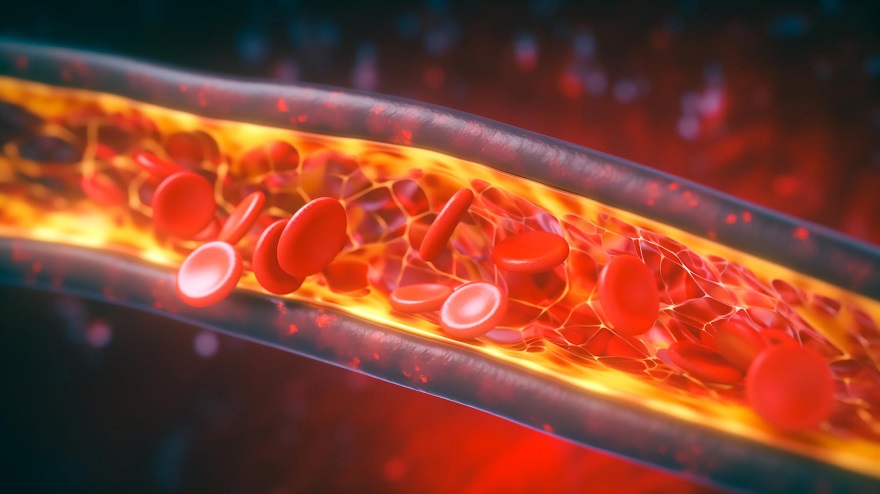High cholesterol is when you have too much of a fatty substance called cholesterol in your blood.
It’s mainly caused by eating fatty food, not exercising enough, being overweight, smoking, and drinking alcohol. It can also run in families.
You can lower your cholesterol by eating healthily and getting more exercise. Some people also need to take medicine.
Too much cholesterol can block your blood vessels. It makes you more likely to have heart problems or a stroke.
CAUSES
Often, there are no specific symptoms of high cholesterol. You could have high cholesterol and not know it.
If you have high cholesterol, your body may store the extra cholesterol in your arteries. These are blood vessels that carry blood from your heart to the rest of your body. A buildup of cholesterol in your arteries is known as plaque. Over time, plaque can become hard and make your arteries narrow. Large deposits of plaque can completely block an artery. Cholesterol plaques can also break apart, leading to the formation of a blood clot that blocks the flow of blood.
A blocked artery to the heart can cause a heart attack. A blocked artery to your brain can cause a stroke.
Many people don’t discover that they have high cholesterol until they suffer one of these life-threatening events. Some people find out through routine check-ups that include blood tests.
RISK FACTORS
• Cigarette smoking
• High blood pressure
• Older age
• Having an immediate family member (parent or sibling) who has had heart disease
• Being overweight or obese
• Inactivity
TREATMENT/MANAGEMENT
If you have high cholesterol, you may need to make some lifestyle changes. If you smoke, quit. Exercise regularly. If you’re overweight, losing some weight can improve your cholesterol levels and your risk for heart disease. Make sure to eat plenty of fruits, vegetables, whole grains, and fish.
Depending on your risk factors, your doctor may prescribe medicine and lifestyle changes.

